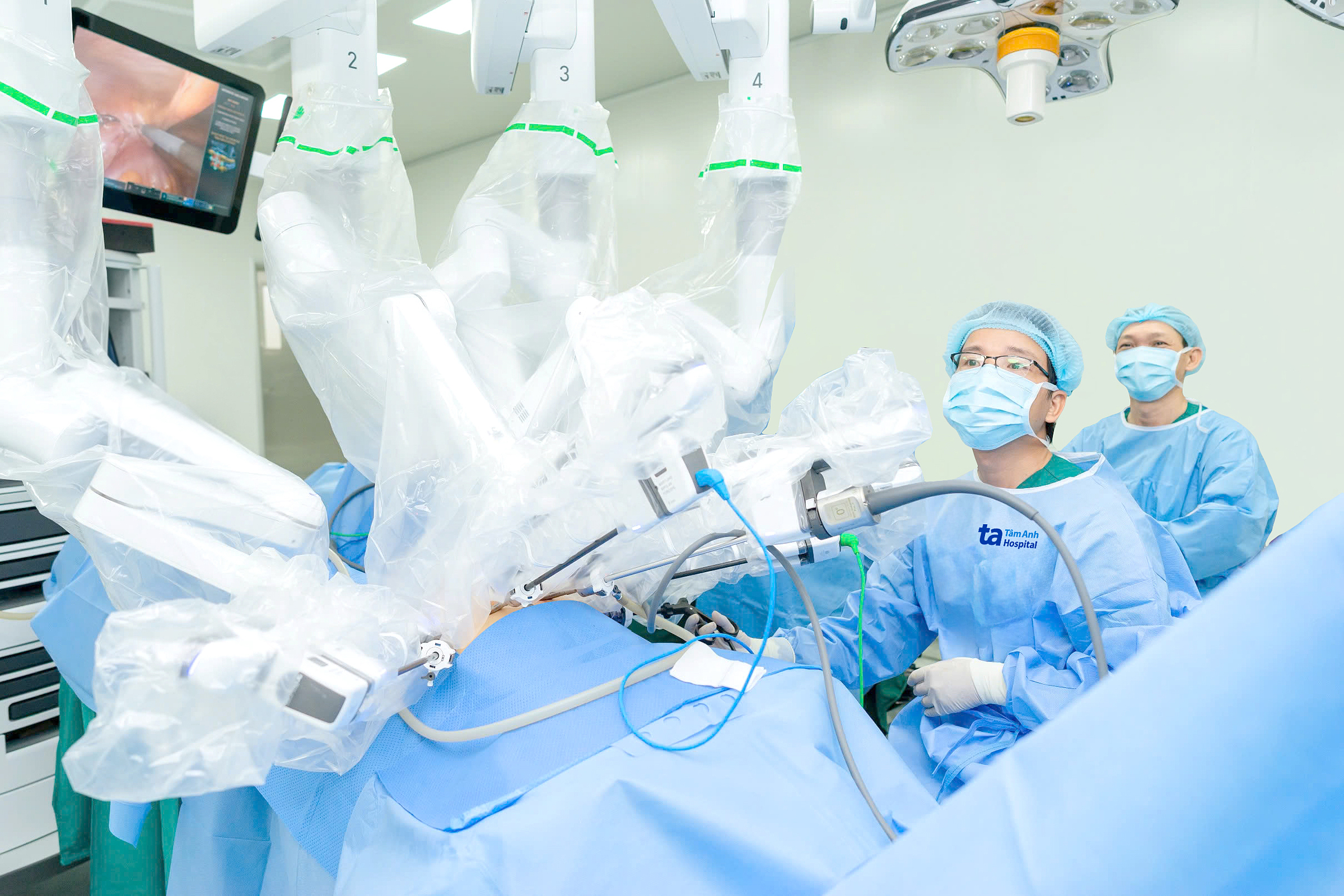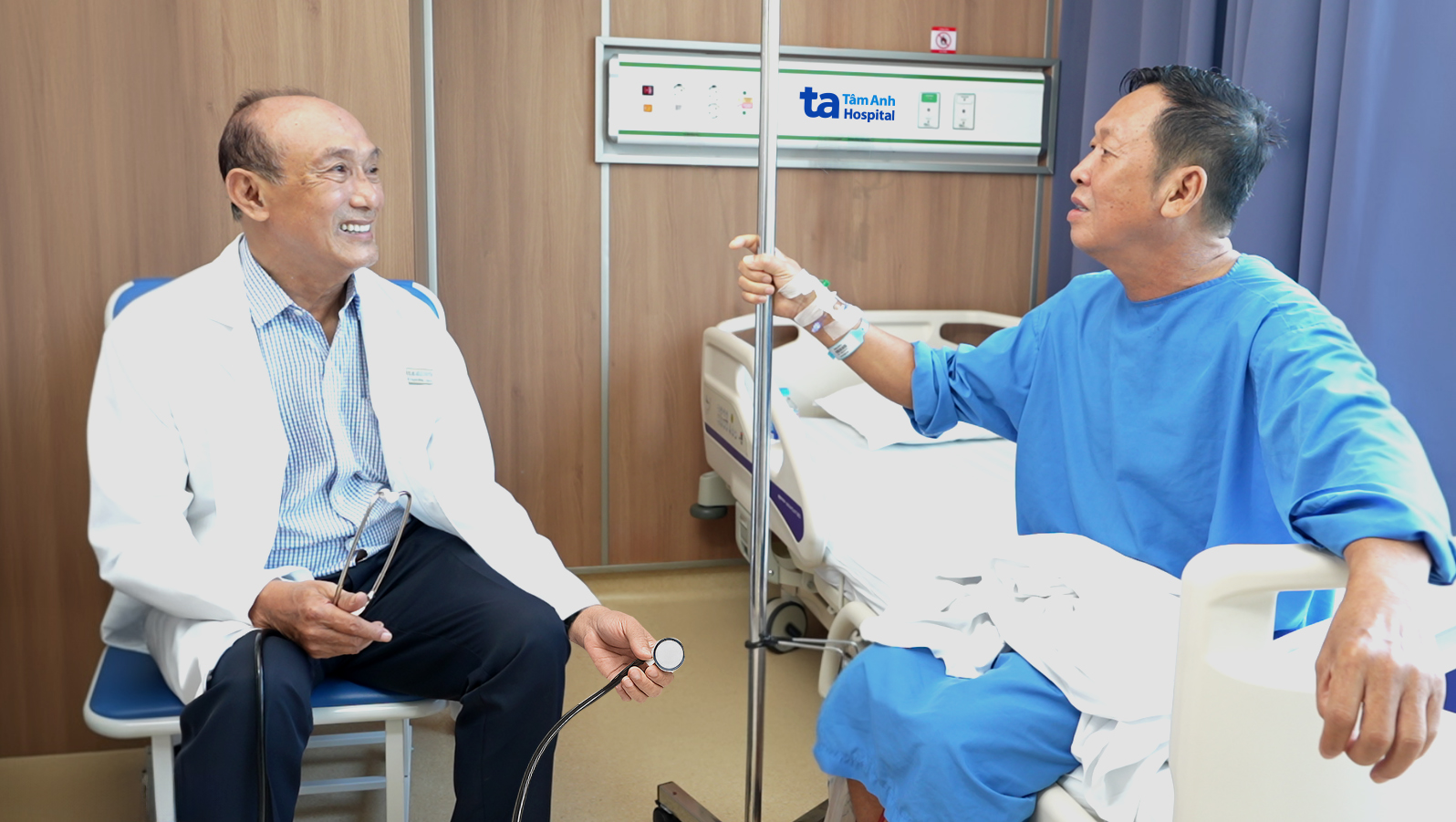Tri's prostate-specific antigen (PSA) test result was 5.2 ng/mL (normal is below 4 ng/mL). Associate Professor Vu Le Chuyen, director of the Center for Urology, Nephrology, and Andrology at Tam Anh General Hospital in Ho Chi Minh City, explained that Tri's cancer was classified as low-to-intermediate risk, with the tumor localized within the prostate gland. Dr. Chuyen recommended a robotic-assisted radical prostatectomy using the Da Vinci Xi surgical system.
 |
The Da Vinci Xi robot assists doctors in performing a radical prostatectomy on Tri. Photo: Hospital provided |
The Da Vinci Xi robot assists doctors in performing a radical prostatectomy on Tri. Photo: Hospital provided
Associate Professor Chuyen and his team removed Tri's entire prostate, seminal vesicles, and vas deferens, and also performed a pelvic lymph node dissection. Tri recovered quickly, able to walk and manage personal care. His drains were removed, and he was discharged early with scheduled follow-up appointments to monitor his health and prevent recurrence.
 |
After prostate cancer surgery, Tri sits up, walks on his own, and talks with Associate Professor Chuyen. Photo: Tam Anh General Hospital |
After prostate cancer surgery, Tri sits up, walks on his own, and talks with Associate Professor Chuyen. Photo: Tam Anh General Hospital
Prostate cancer is common in men over 50, with the risk increasing with age. In its early stages, the disease often has no noticeable symptoms.
Current screening methods include a digital rectal exam to detect abnormalities, PSA testing, ultrasound, and prostate biopsy. Associate Professor Chuyen recommends regular checkups and early screening for men, especially those with a family history of prostate cancer, mutations in genes like BRCA1 or BRCA2, Lynch syndrome, obesity, frequent exposure to harmful chemicals, smoking history, or previous prostate infections. Early detection, while the cancer is still confined to the prostate, significantly increases the chances of a complete cure.
Ha Thanh
| Readers can submit questions about urological diseases here for doctors to answer. |












